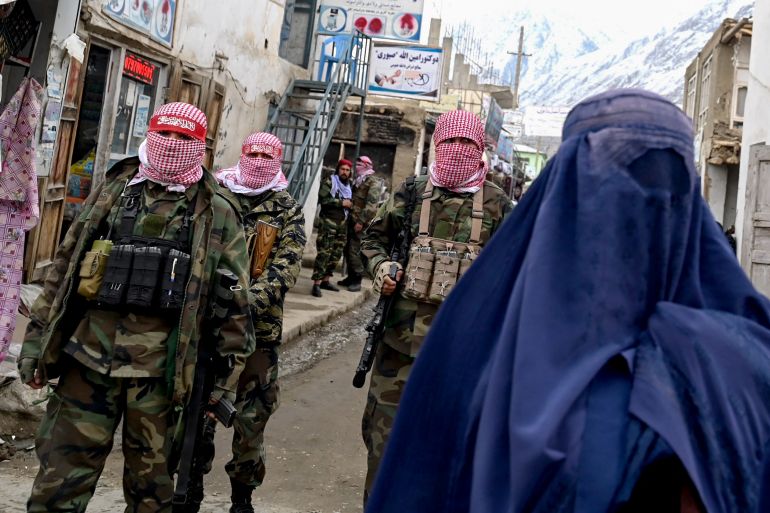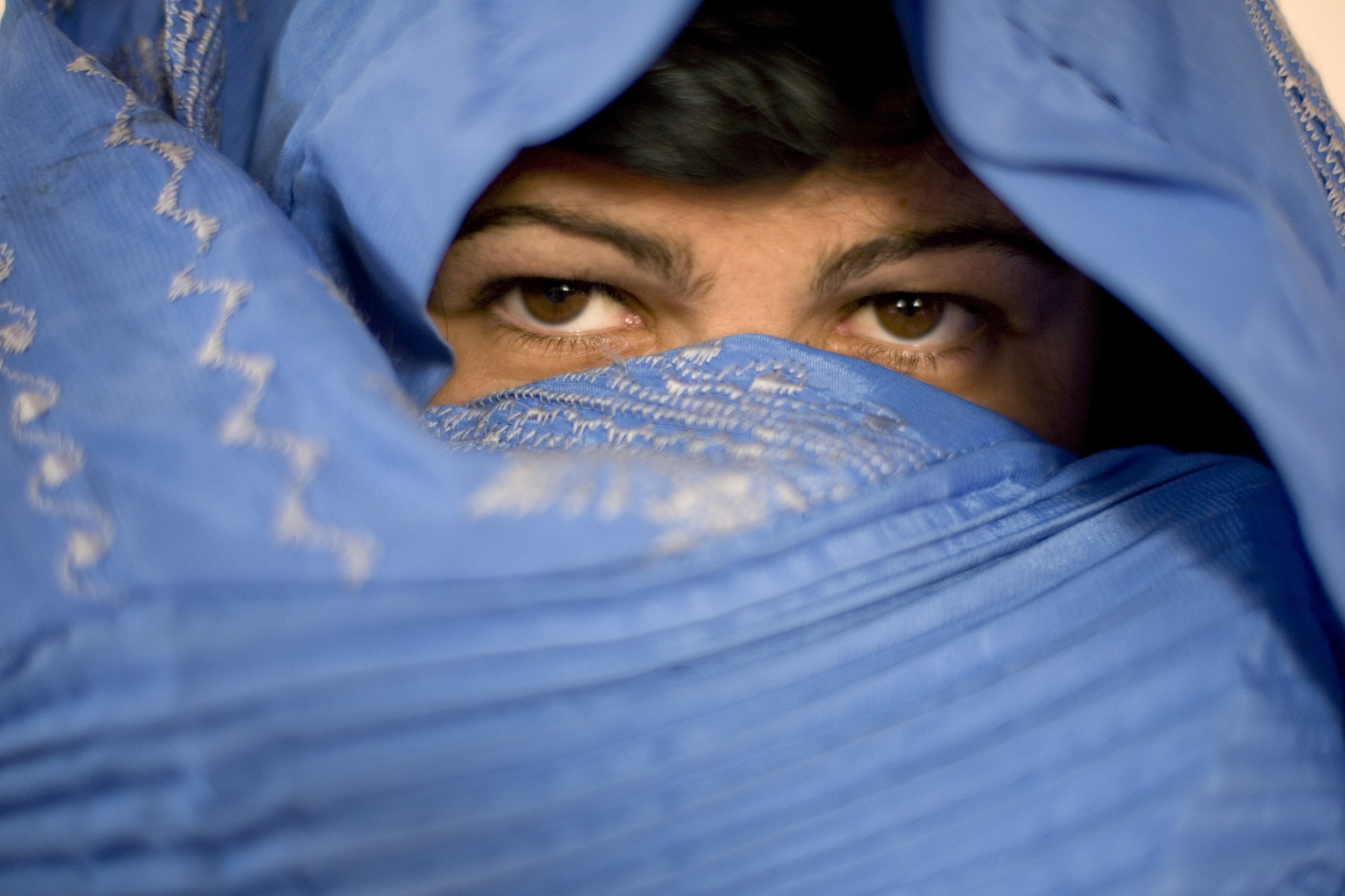It is the first time the Taliban is attending the talks but female representatives from Afghanistan have been excluded.
Published On 1 Jul 20241 Jul 2024

Taliban security personnel stand guard as an Afghan woman walks along a street at a market in the Baharak district of Badakhshan province, on on February 26, 2024 [File: Wakil Kohsar/AFP]
Delegations from Afghanistan and about 30 other countries have arrived in Doha to start a third round of United Nations-sponsored talks on integrating the South Asian country into the international community.
This is the first time the Taliban will be present at these talks.
Who will be there?
Zabihullah Mujahid, the spokesman for the Islamic Emirate of Afghanistan will lead the Afghan delegation.
The Taliban has also sent government officials responsible for banking, trade and narcotics control.
UN Secretary-General Antonio Guterres will not be present. He had attended the two previous meetings held since the Taliban takeover in August 2021, but this time the UN will be represented by Rosemary DiCarlo, undersecretary-general for political and peacebuilding affairs.
Qatar’s special envoy to Afghanistan, Faisal bin Abdullah al-Hanzab, will be present as will the US special representatives for Afghanistan, Thomas West and Rina Amiri.
What’s on the agenda?
The UN says the talks are part of an ongoing process aimed at a future where Afghanistan is at peace internally and with its neighbours, fully integrated into the international community and where it meets international obligations, including on human rights, particularly the rights of women and girls.
The Taliban, on the other hand, is eager to discuss restrictions on the country’s financial and banking systems – the main challenges to the growth of its private sector – as well as the action it is taking against drug trafficking.
Among the Taliban’s demands is the release of about $7bn of the country’s central bank reserves that are frozen in the US. It also plans to discuss providing farmers with alternative livelihood sources after the ban on cultivating poppy.
Afghanistan has long wrestled with the illegal drug trade, being the world’s largest producer of opium. Large amounts of heroin and meth also originate in the country. About four million people in the country, nearly 10 percent of its total population, are drug users, the UN estimates.
In April 2022, the Taliban introduced strict new laws banning the cultivation of opium poppy. In the seven months following the ban, poppy cultivation and opium production plunged more than 90 percent, decimating a key trade for thousands of farmers and labourers, according to a UN report.
Do these talks mean recognition for the Taliban?
The meeting does not equal official recognition.
However, the group has welcomed the talks as it aims to salvage Afghanistan’s cash-strapped economy, expand relations with trade partners, and deal with its drug problem.
“The Doha meeting will discuss the independent assessment on engagement with Afghanistan submitted to the [UN] Security Council in November 2023,” a Qatari source told Al Jazeera.
The Taliban refused to participate in the first Doha-hosted meeting in May 2023, saying its demands – including the recognition of its emirate as the sole official representative of Afghanistan and assurances its governance would not be criticised – were not being met.
When the second meeting took place in February this year, the Taliban said its invitation had been “sent too late” for it to attend, while the UN’s Guterres said the group had set unacceptable conditions for its attendance, including demands that Afghan civil society members be excluded from the talks.
Another bone of contention has been the appointment of a UN special representative for Afghanistan, proposed by Guterres in December and subsequently approved by the UN Security Council and ratified in the February meeting.
A UN special representative coordinates the work of the UN and acts as the political representative for the secretary-general in the country he or she is appointed to. The agenda for the third Doha meeting does not include discussions about appointing a special representative for Afghanistan.
Will women be included in the talks?
No. The meeting’s organisers have been criticised for not inviting women, with the UN Committee on the Elimination of Discrimination against Women saying it is “deeply concerned” about the exclusion.
“Failure to ensure participation will only further silence Afghan women and girls already facing escalating violations of their rights,” it said in a statement earlier this week.
Read full Al Jazeera post HERE.
